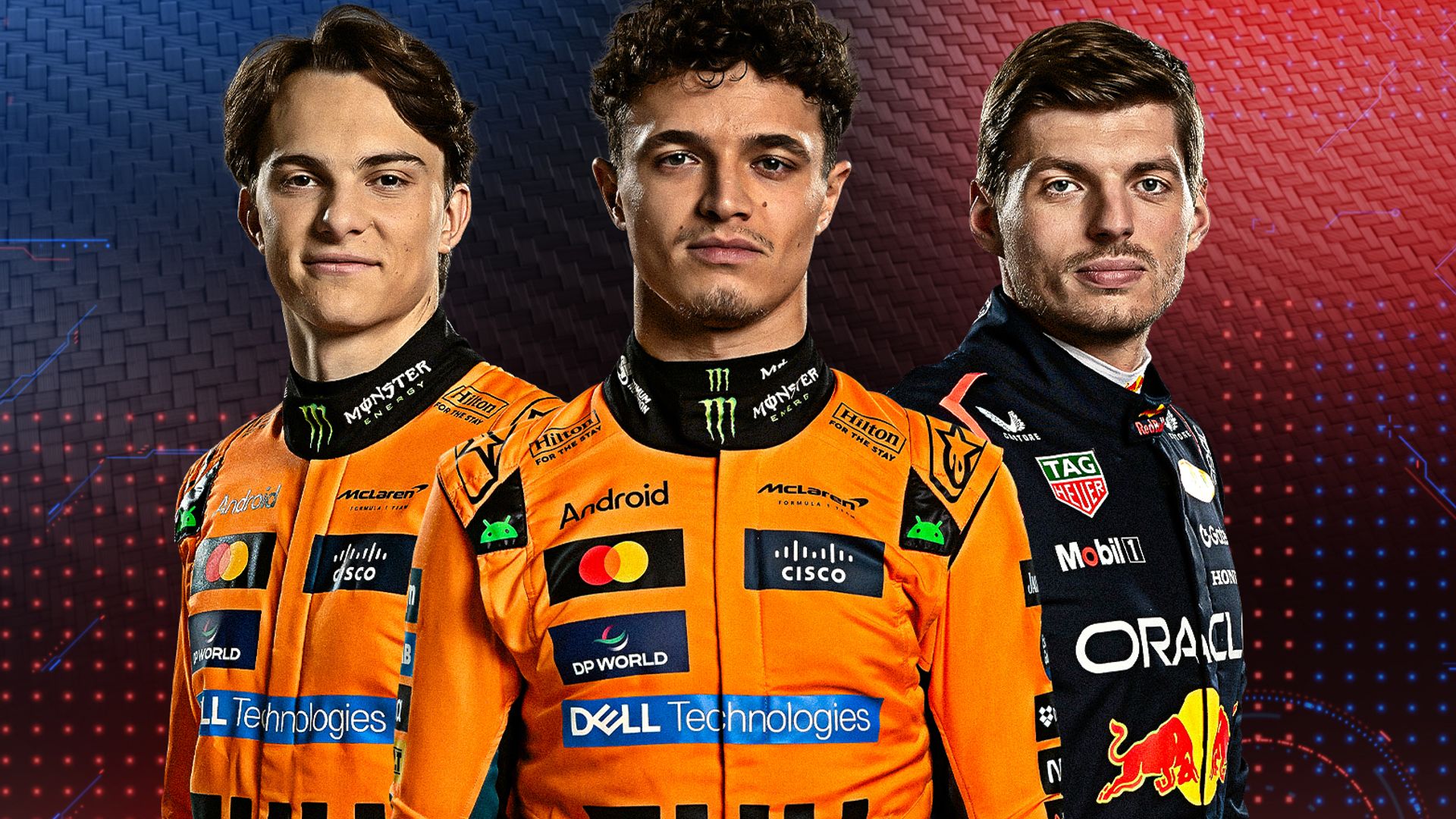Norris’ Rise in F1’s Title Race Signals a New Era, Challenging the Old Guard and Igniting the Flames of Rivalry and Resentment in Motorsport’s Most Elite Arena
As the Formula 1 season approaches its climax, the spotlight shifts to Brazil, where the tension of a three-way title race reaches a fever pitch. For the first time in over six months, a McLaren driver, Lando Norris, finds himself at the top of the standings, a position that has not only reignited hopes for the team but also stirred the pot of rivalry among the sport’s elite. This shift in dynamics is reminiscent of political upheavals where new leaders emerge, challenging the status quo and inciting both fervent support and fierce opposition.
Norris’ ascent is not merely a personal achievement; it symbolizes a broader narrative within Formula 1 that has been brewing for years. McLaren, once a dominant force in the sport, has faced a tumultuous journey through the mid-2010s, grappling with performance issues, management changes, and a struggle to keep pace with the likes of Mercedes and Red Bull Racing. The team’s resurgence, led by Norris, is a testament to resilience and strategic overhaul, reminiscent of historical moments when underdogs rise to challenge established powers.
The Brazilian Grand Prix, set against the backdrop of the vibrant and passionate motorsport culture in South America, will serve as a critical battleground. The atmosphere is electric, with fans divided between their loyalty to established champions and the fresh energy that Norris brings to the track. This division mirrors societal debates where new ideologies clash with traditional values, creating an environment ripe for conflict and passionate discourse.
Norris, known for his charismatic personality and driving prowess, has captured the attention of fans and critics alike. His rise has not only been about speed on the track but also about engaging with the audience in a way that resonates with a younger demographic. This connection is crucial in a sport that has historically struggled with accessibility and relatability. As Norris takes the lead, he embodies the hopes of a new generation of fans who yearn for change and excitement in a sport often perceived as elitist and exclusive.
The implications of Norris’ position extend beyond the immediate race. His success could signal a shift in the competitive landscape of Formula 1, where established teams might need to reassess their strategies and investments. The financial dynamics of the sport are complex, with teams like McLaren historically reliant on sponsorships and performance to secure their place among the elite. As Norris leads the charge, the potential for increased sponsorship and fan engagement could provide McLaren with the resources needed to sustain its resurgence.
Moreover, the rivalry with established teams like Mercedes and Red Bull is not just about points; it is a battle for narrative supremacy in a sport that thrives on stories of triumph and adversity. The tension between drivers and teams is palpable, with each race serving as a chapter in a larger saga that captivates audiences worldwide. The stakes are high, and the pressure to perform is immense, as each driver seeks to carve their legacy in the annals of Formula 1 history.
The Brazilian Grand Prix will undoubtedly be a pivotal moment in this unfolding drama. With the title race tightening, every lap will be scrutinized, and every decision made by teams and drivers will carry significant weight. The potential for controversy is ever-present, as the fine line between aggressive racing and reckless behavior often blurs in the heat of competition. Fans will be on the edge of their seats, not just for the outcome of the race but for the implications it holds for the future of the sport.
As the race weekend approaches, the narrative surrounding Norris and McLaren continues to evolve. The excitement is palpable, with fans eagerly anticipating the clash of titans on the track. Will Norris solidify his position at the top, or will the established powers of Formula 1 reclaim their dominance? The answer lies in the heart of Brazil, where the roar of engines and the passion of fans will determine the fate of this thrilling title race. The stage is set for a showdown that promises to be as dramatic and divisive as the most contentious political debates, with the world watching closely as the next chapter in Formula 1 history unfolds.

